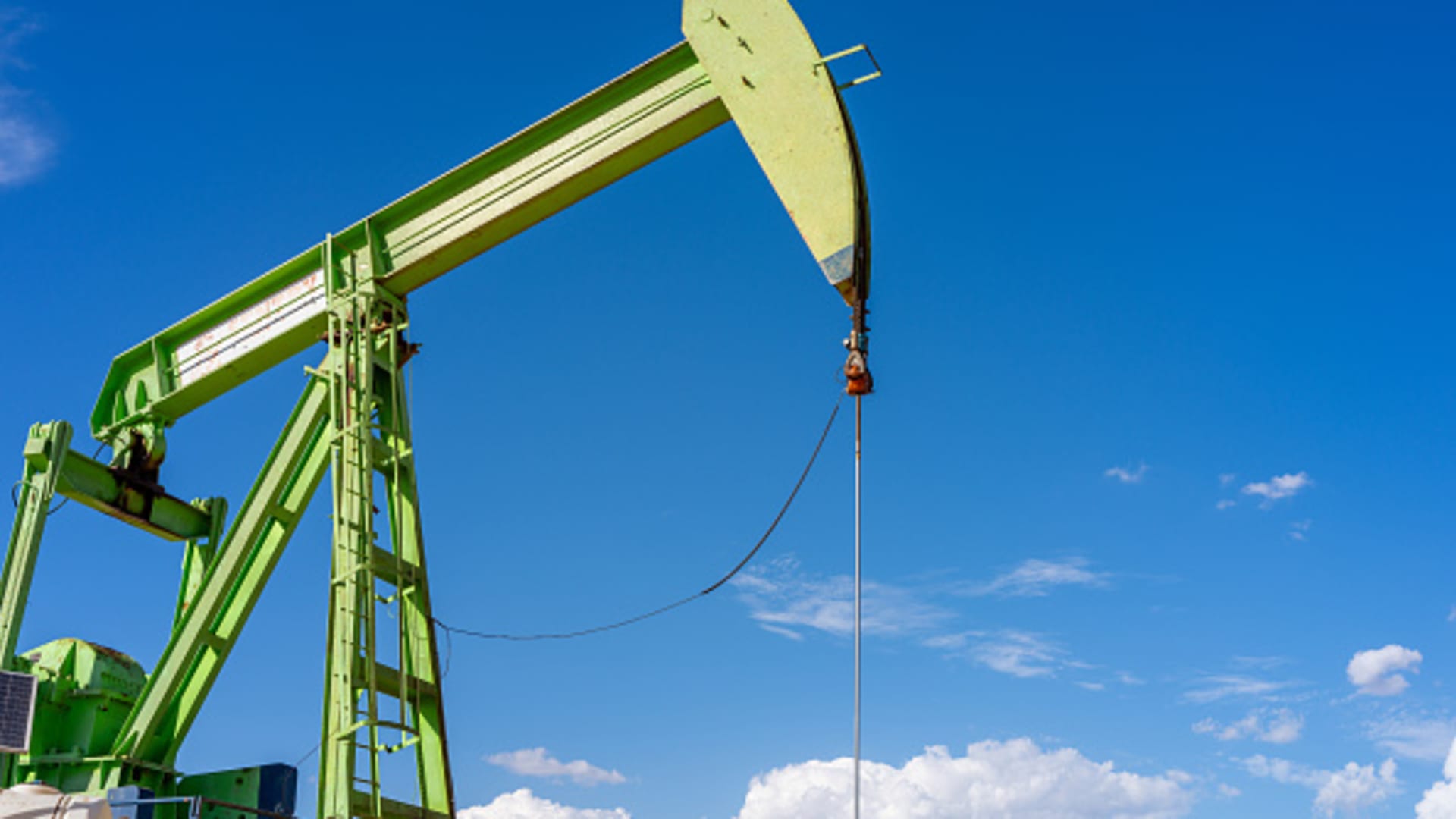- Crude oil futures have dropped to the lowest level since early June, despite escalating tensions between Israel and Houthi militants in Yemen.
- The oil price risk premium is nearly zero as the market has largely looked past Middle East tensions as potential threat to crude supplies, according to a Goldman Sachs note Tuesday.
Crude oil futures on Tuesday dropped to the lowest level in more than a month, as the market has largely ignored recent tit-for-tat strikes between Israel and Houthi militants in Yemen.
Here are today’s energy prices:
- West Texas Intermediate September contract: $77.94 per barrel, down 46 cents, or 0.59%. Year to date, U.S. crude oil has gained 8.7%.
- Brent September contract: $81.97 per barrel, down 45 cents, or 0.55%. Year to date, the global benchmark has gained 6.4%.
- RBOB Gasoline August contract: $2.46 per gallon, down 1 cent, or 0.45%. Year to date, gasoline is up 17%.
- Natural Gas August contract: $2.22 per thousand cubic feet, down 3 cents, or 1.38%. Year to date, gas is down 11.6%.
The Houthis struck Tel Aviv with a long-range drone Friday, killing one person. Israel responded with airstrikes against Houthi targets near the Al Hudaydah Port in Yemen over the weekend, hitting oil facilities.
But the oil price risk premium is nearly zero as the market has largely looked past Middle East tensions as potential threat to crude supplies, according to a Goldman Sachs note Tuesday.
Summer gasoline demand also is not supporting higher crude prices. Market analysts have been forecasting a tighter third quarter, with U.S. crude inventories have declining three weeks in a row. But gasoline demand was soft for the week ending July 12, declining by 615,000 barrels per day.
“Oil is starting to feel as if it is heading for the doldrums,” John Evans, analyst at oil broker PVM, told clients in a note.
Wildfires in Alberta, however, poses a potential risk to crude supplies in Canada though production has remained solid so far, according to Goldman. The worst of the wildfire season likely lies ahead, with a third of the wildfires in Alberta burning out of control, threatening 400,000 barrels per day in production, according to the investment bank.
The oil market should be slightly undersupplied by 200,000 bpd in 2024, as demand grown is forecast to remain healthy this year, according to a note from UBS on Monday.












